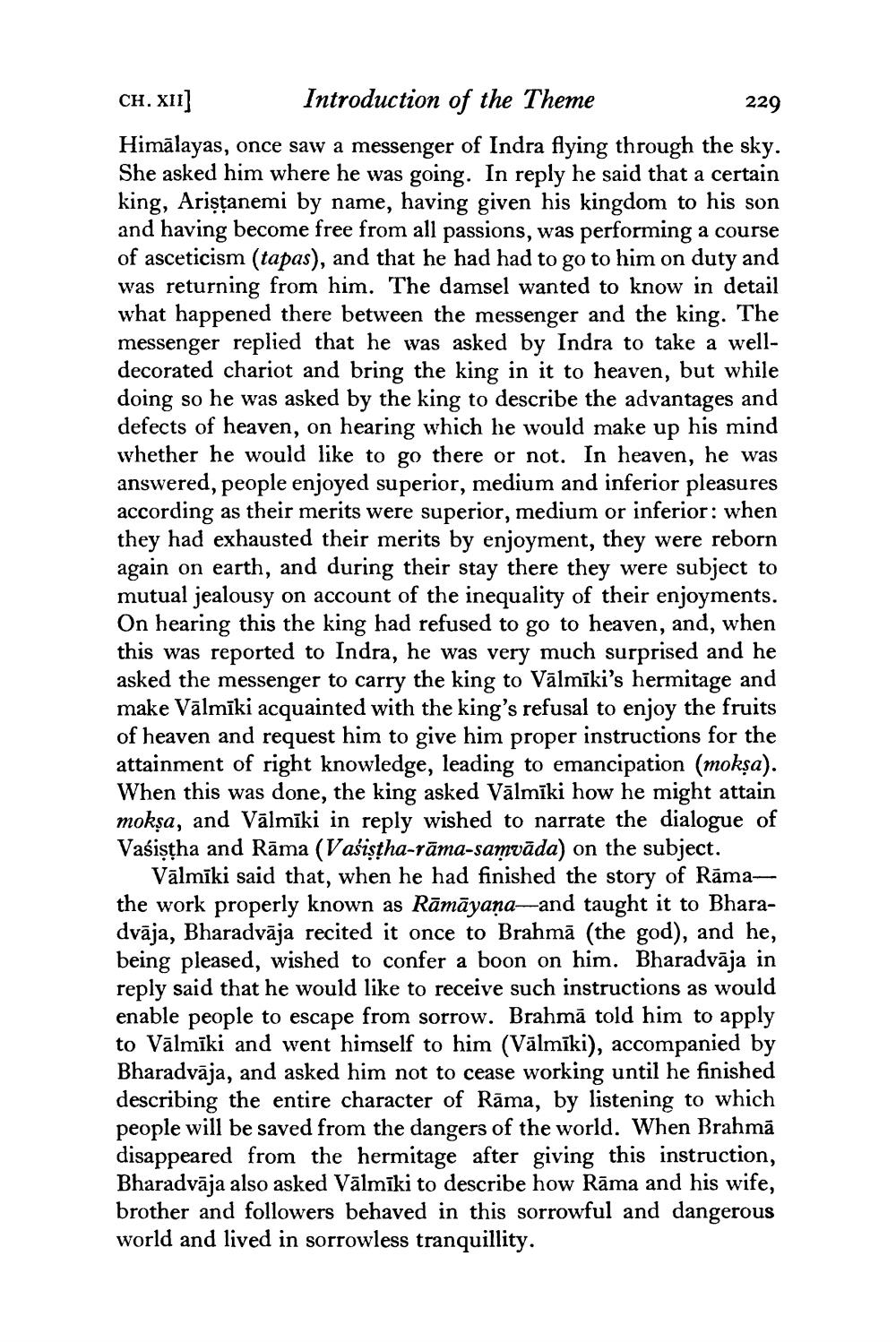________________
CH. XII] Introduction of the Theme
229 Himālayas, once saw a messenger of Indra flying through the sky. She asked him where he was going. In reply he said that a certain king, Aristanemi by name, having given his kingdom to his son and having become free from all passions, was performing a course of asceticism (tapas), and that he had had to go to him on duty and was returning from him. The damsel wanted to know in detail what happened there between the messenger and the king. The messenger replied that he was asked by Indra to take a welldecorated chariot and bring the king in it to heaven, but while doing so he was asked by the king to describe the advantages and defects of heaven, on hearing which he would make up his mind whether he would like to go there or not. In heaven, he was answered, people enjoyed superior, medium and inferior pleasures according as their merits were superior, medium or inferior: when they had exhausted their merits by enjoyment, they were reborn again on earth, and during their stay there they were subject to mutual jealousy on account of the inequality of their enjoyments. On hearing this the king had refused to go to heaven, and, when this was reported to Indra, he was very much surprised and he asked the messenger to carry the king to Vālmīki's hermitage and make Vālmīki acquainted with the king's refusal to enjoy the fruits of heaven and request him to give him proper instructions for the attainment of right knowledge, leading to emancipation (mokşa). When this was done, the king asked Vālmīki how he might attain mokșa, and Vālmīki in reply wished to narrate the dialogue of Vasistha and Rāma (Vašistha-rāma-samvāda) on the subject.
Vālmīki said that, when he had finished the story of Rāmathe work properly known as Rāmāyaṇa--and taught it to Bharadvāja, Bharadvāja recited it once to Brahmā (the god), and he, being pleased, wished to confer a boon on him. Bharadvāja in reply said that he would like to receive such instructions as would enable people to escape from sorrow. Brahmā told him to apply to Vālmīki and went himself to him (Vālmīki), accompanied by Bharadvāja, and asked him not to cease working until he finished describing the entire character of Rāma, by listening to which people will be saved from the dangers of the world. When Brahmā disappeared from the hermitage after giving this instruction, Bharadvāja also asked Vālmīki to describe how Rāma and his wife, brother and followers behaved in this sorrowful and dangerous world and lived in sorrowless tranquillity.




